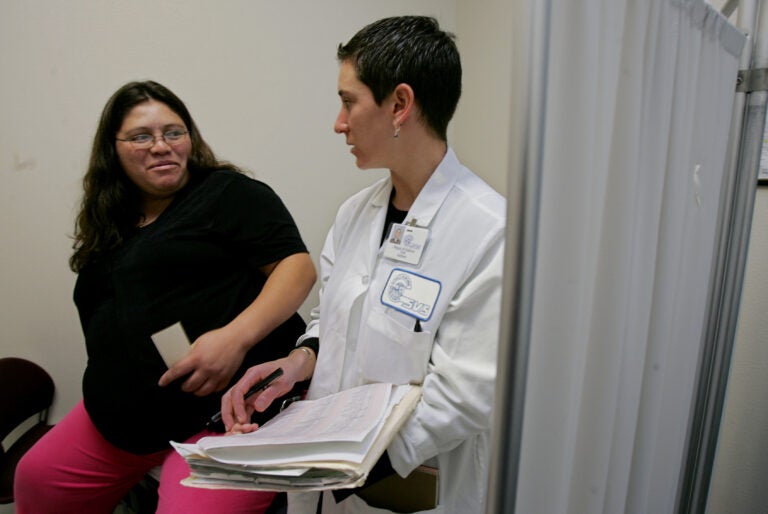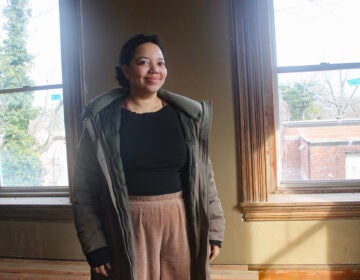Bridging the Gaps for Latino Health
Latinos are America’s biggest minority — and yet many of them feel alienated by our country’s health care system.
Listen 48:30
A family nurse practitioner talks with a pregnant patient at the Clinica de Salud del Valle de Salinas, a community clinic, in Salinas, Calif. (AP File Photo)
Over the past few decades, Latinos have become the largest racial or ethnic minority in the United States, making up nearly 20 percent of the country’s population. Despite that, many Latinos feel alienated by our medical system, due to cultural and language barriers, and a lack of Latino physicians — and those barriers can have a real impact on their overall health.
On this episode, we look for solutions to provide better care to Latino communities and patients. We hear stories about one physician’s bold initiative to bridge the language gap between doctors and farmworkers, new approaches to help victims of gun violence, and a national effort to increase the number of Latino physicians.
ALSO HEARD:
- Latinos make up 19 percent of the American population, but only 6 percent of physicians. But there are efforts underway to change that. We hear from Cesar Padilla, an obstetric anesthesiologist at Stanford. In 2022, he helped start National Latino Physician Day to increase visibility and push institutions to recruit more Latinos. We talk with Padilla about his own difficult journey to becoming a doctor, how medical schools and health systems can help other Latino physicians overcome these challenges.
Segments from this episode
WHYY is your source for fact-based, in-depth journalism and information. As a nonprofit organization, we rely on financial support from readers like you. Please give today.






